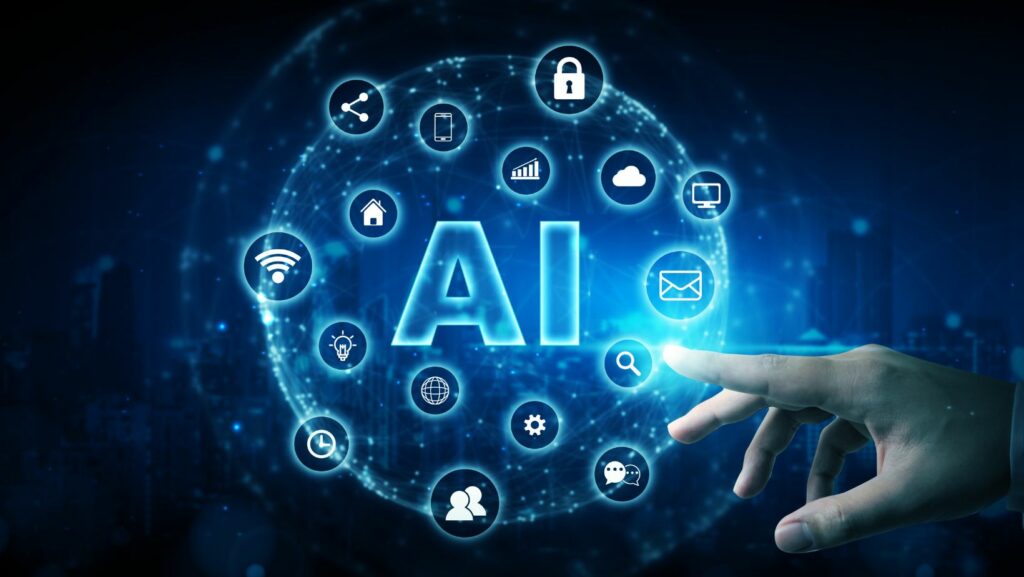Key Takeaways
- Interactive Storytelling: AI chatbot roleplay enables users to engage in creative storytelling by immersing themselves in dynamic narratives and character roles.
- Educational Benefits: These chatbots enhance language learning and communication skills through realistic conversations, providing immediate feedback and fostering critical thinking.
- Therapeutic Applications: AI chatbots offer a safe space for users to express emotions and thoughts, aiding mental health support in non-threatening environments.
- Technological Limitations: Current AI technology faces challenges such as understanding context, maintaining coherent dialogues, and addressing data privacy concerns.
- Ethical Considerations: Users should be aware of the ethical implications surrounding AI chatbots, especially regarding emotional dependency and the potential for biased interactions.
- Future Innovations: Ongoing advancements in natural language processing and emotional intelligence are set to revolutionize AI chatbot roleplay, enhancing user experiences across various industries.
In the rapidly evolving landscape of artificial intelligence, AI chatbot roleplay has emerged as a fascinating frontier. These interactive digital companions are not just tools for customer service; they’re transforming the way people engage in creative storytelling and immersive experiences. By simulating human-like conversations, they invite users to explore new narratives and scenarios, making every interaction unique.
Whether it’s for entertainment, education, or therapeutic purposes, AI chatbot roleplay offers endless possibilities. Users can step into various roles, from heroic adventurers to everyday characters, all while honing their communication skills and expanding their imaginations. As technology continues to advance, the potential for these chatbots to enhance personal and professional interactions becomes increasingly compelling.
AI Chatbot Roleplay
AI chatbot roleplay involves utilizing artificial intelligence to create interactive and engaging conversation scenarios. These chatbots simulate human-like interactions, allowing users to immerse themselves in diverse narratives. Users can assume various roles while the chatbot adapts its responses, enhancing the overall experience.
AI chatbots contribute significantly to multiple fields, including entertainment, education, and therapy. In entertainment, they provide a platform for storytelling, enabling users to explore imaginative worlds and complex characters. In educational settings, chatbots support language learning by offering conversational practice, enhancing learners’ communication skills. In therapy, AI chatbots offer a non-threatening environment for individuals to express feelings and thoughts, aiding mental health support.
Various tools and platforms facilitate AI chatbot roleplay. Advanced natural language processing (NLP) enables chatbots to understand and respond to user inputs effectively, creating seamless interactions. Machine learning algorithms allow chatbots to learn from user interactions, improving their ability to engage in nuanced conversations.
The growth of AI technology fosters opportunities for creative expression. Users can customize scenarios and set parameters for roleplay, making each experience unique. The ability to simulate realistic dialogues promotes imagination and encourages users to push their storytelling boundaries.
Benefits of AI Chatbot Roleplay
AI chatbot roleplay offers multiple advantages that enhance user interaction and educational experiences. These benefits span user engagement and learning opportunities, providing value in various contexts.
Enhanced User Engagement
 Enhanced user engagement occurs when AI chatbots create dynamic interactions. Users experience personalized storytelling through advanced dialogue, making conversations more memorable. Engaging narratives foster emotional connections, encouraging users to explore different scenarios. Roleplay provides a safe space for experimentation, allowing users to play characters without real-world repercussions. By utilizing user data, AI chatbots can adapt responses and cater to individual preferences, resulting in richer interactions and sustained interest.
Enhanced user engagement occurs when AI chatbots create dynamic interactions. Users experience personalized storytelling through advanced dialogue, making conversations more memorable. Engaging narratives foster emotional connections, encouraging users to explore different scenarios. Roleplay provides a safe space for experimentation, allowing users to play characters without real-world repercussions. By utilizing user data, AI chatbots can adapt responses and cater to individual preferences, resulting in richer interactions and sustained interest.
Learning Opportunities
Learning opportunities in AI chatbot roleplay encompass various domains, including language acquisition and interpersonal skills development. Users practice language skills through realistic conversations, receiving instant feedback that supports their learning journey. Interactive scenarios promote critical thinking and decision-making, enhancing problem-solving abilities. Additionally, chatbots simulate social interactions, which can improve communication skills in diverse settings. These educational benefits make AI chatbots valuable tools for both formal and informal learning environments.
Challenges in AI Chatbot Roleplay
AI chatbot roleplay faces several challenges that impact user experience and ethical development. These challenges stem mainly from technological limitations and ethical considerations that must be addressed for effective implementation.
Limitations of Current Technology
Limited understanding of context hinders AI chatbots from maintaining coherent conversations over extended interactions. Current natural language processing (NLP) systems struggle with context retention, making responses appear disjointed. In addition, chatbots often rely on scripted patterns, reducing their ability to adapt dynamically to user input. This restricts the overall immersion users experience during roleplay sessions.
Data privacy remains a pressing concern as chatbots process personal information. Many users hesitate to share sensitive data, limiting their interaction depth. Furthermore, machine learning algorithms require vast datasets for training. Inadequate datasets can result in biases, leading to inappropriate or inaccurate responses that undermine user trust.
Ethical Considerations
Ethical dilemmas arise regarding the use of AI chatbots in sensitive situations, such as therapy or education. Misuse can lead to dependence on chatbots for emotional support, potentially neglecting human interactions crucial for mental health. Additionally, chatbots might inadvertently reinforce harmful stereotypes through biased data, which raises questions about their deployment.
Transparency in chatbot design also poses a challenge. Users often remain unaware of when they’re interacting with an AI versus a human, which complicates informed consent. Clear guidelines must exist to promote ethical interactions while ensuring that users understand the limitations and capabilities of AI chatbots.
Future of AI Chatbot Roleplay
The future of AI chatbot roleplay promises significant advancements and expanded applications. Continuous innovations will enhance user experiences and broaden the impact across various sectors.
Innovations on the Horizon
 Innovative technologies will redefine AI chatbot roleplay. Improvements in natural language processing (NLP) will lead to more coherent and context-aware conversations. Enhanced machine learning techniques will allow chatbots to adapt better to individual users, creating personalized interactions. Integration of emotional intelligence will enable chatbots to recognize and respond to users’ emotional cues, fostering deeper connections. Moreover, advancements in voice recognition and synthesis will enhance the realism of interactions, allowing for voice-based roleplay scenarios that mimic face-to-face conversations.
Innovative technologies will redefine AI chatbot roleplay. Improvements in natural language processing (NLP) will lead to more coherent and context-aware conversations. Enhanced machine learning techniques will allow chatbots to adapt better to individual users, creating personalized interactions. Integration of emotional intelligence will enable chatbots to recognize and respond to users’ emotional cues, fostering deeper connections. Moreover, advancements in voice recognition and synthesis will enhance the realism of interactions, allowing for voice-based roleplay scenarios that mimic face-to-face conversations.
Potential Industry Applications
Various industries will adopt AI chatbot roleplay to enhance engagement and training.
- Education: Language learning platforms can implement chatbots for immersive conversational practice, providing real-time feedback and contextual learning opportunities.
- Healthcare: Mental health applications may utilize chatbots in therapeutic settings to offer support, facilitate communication, and track emotional progress in a non-threatening environment.
- Entertainment: Video games and interactive storytelling platforms can incorporate chatbots to create dynamic narratives, allowing users to shape the storyline based on their choices.
- Corporate Training: Businesses can use chatbots in training modules to simulate real-life scenarios, improving soft skills and decision-making through interactive roleplay.
- Customer Service: Enhanced roleplay functionalities can improve customer engagement by providing personalized assistance and resolving complex queries through simulated interactions.
These potential applications position AI chatbot roleplay as a powerful tool for fostering creativity, enhancing communication, and promoting skill development across multiple domains.
AI chatbot roleplay is revolutionizing how individuals engage with technology. By bridging the gap between entertainment and education, these chatbots offer immersive experiences that enhance creativity and communication skills. Their ability to adapt and personalize interactions makes them invaluable across various sectors.
As advancements in natural language processing and machine learning continue, the future looks bright for AI chatbots. They’re set to become even more intuitive and emotionally aware, creating deeper connections with users. While challenges remain, the potential for these tools to enrich personal and professional interactions is undeniable. Embracing AI chatbot roleplay opens up new avenues for exploration and learning in a rapidly evolving digital landscape.



